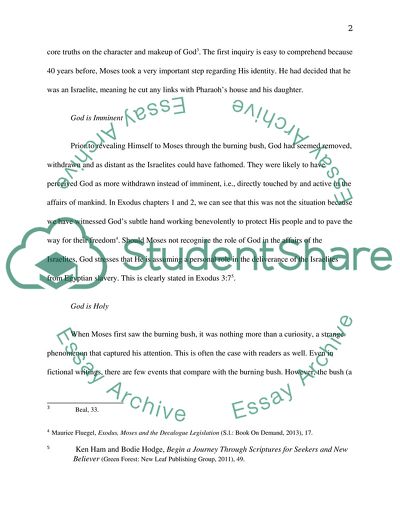Cite this document
(The Book of Exodus Report/Review Example | Topics and Well Written Essays - 2000 words, n.d.)
The Book of Exodus Report/Review Example | Topics and Well Written Essays - 2000 words. https://studentshare.org/religion-and-theology/1858954-exodus-chapter-3
The Book of Exodus Report/Review Example | Topics and Well Written Essays - 2000 words. https://studentshare.org/religion-and-theology/1858954-exodus-chapter-3
(The Book of Exodus Report/Review Example | Topics and Well Written Essays - 2000 Words)
The Book of Exodus Report/Review Example | Topics and Well Written Essays - 2000 Words. https://studentshare.org/religion-and-theology/1858954-exodus-chapter-3.
The Book of Exodus Report/Review Example | Topics and Well Written Essays - 2000 Words. https://studentshare.org/religion-and-theology/1858954-exodus-chapter-3.
“The Book of Exodus Report/Review Example | Topics and Well Written Essays - 2000 Words”. https://studentshare.org/religion-and-theology/1858954-exodus-chapter-3.


